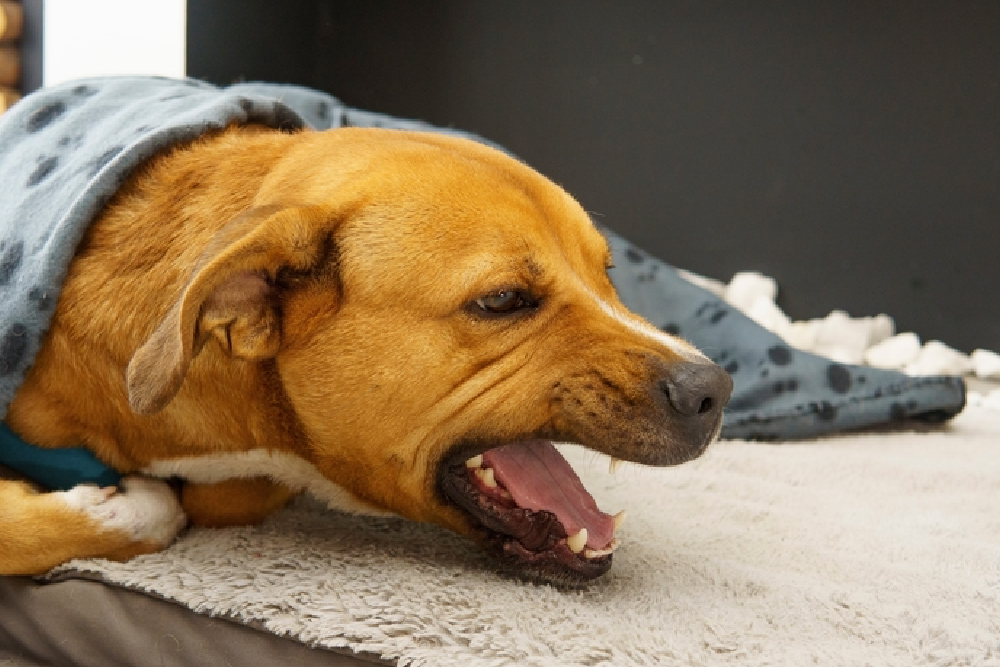Kennel cough, or Canine Infectious Respiratory Disease Complex (CIRDC), is a prevalent upper respiratory infection in dogs that is highly contagious. It primarily affects the respiratory tract and can lead to serious health complications, especially in puppies, senior dogs, and those with weakened immune systems. At Cane Bay Veterinary Clinic, our goal is to equip pet owners with a thorough understanding of kennel cough, including its causes, symptoms, treatment options, and effective prevention strategies.
Read more about Canine Infectious Respiratory Disease Complex (Kennel Cough) – AVMA
Understanding Kennel Cough in Dogs
Causes of Kennel Cough
Kennel cough arises from a combination of bacterial and viral pathogens that infect the respiratory tract. The most common are:
- Bordetella bronchiseptica (primary bacterial cause)
- Canine parainfluenza virus
- Canine adenovirus type-2
- Mycoplasma species (bacteria that exacerbate respiratory issues)
Important note- Bordetella is the strain contained in the kennel cough vaccine, but is NOT the only pathogen causing kennel cough.
Transmission of Kennel Cough
Dogs can contract kennel cough through:
- Direct contact with infected dogs, such as during playdates or visits to dog parks and boarding facilities.
- Exposure to contaminated surfaces like shared toys, water bowls, and kennel environments.
- Aerosol transmission from coughing or sneezing of infected dogs, spreading the pathogens in the air.
Recognizing the Symptoms of Kennel Cough
Common Symptoms
Be attentive to these signs of kennel cough:
- A persistent, honking cough often described as a “goose honk.”
- Sneezing, nasal discharge, and watery eyes.
- Gagging or retching, sometimes resulting in white foam.
- Mild lethargy and occasionally a low fever.
When to Seek Veterinary Care
It’s crucial to consult your veterinarian if your dog shows:
- Severe or prolonged coughing.
- Difficulty breathing, wheezing, or blue-tinged gums.
- Loss of appetite or extreme lethargy.
- Signs of pneumonia, such as labored breathing, fever, or refusal to drink water.
Learn more about Respiratory Distress in Pets – AAHA
Diagnosing Kennel Cough
Veterinary Examination
Our veterinarians will conduct a thorough examination, including:
- A physical exam and history review to check for recent exposure to other dogs.
- A cough stimulation test by gently pressing the trachea to elicit coughing.
Diagnostic Tests for Severe Cases
For severe or persistent cases, further diagnostics may be necessary:
- Chest X-rays to rule out pneumonia or heart disease.
- PCR or bacterial culture tests to identify the specific pathogen involved.
Read more about Canine Preventive Guidelines – AVMA/AAHA
Treatment Options for Kennel Cough
Home Care for Mild Cases
For mild cases, home care can be effective:
- Ensure rest and limited activity to prevent symptom escalation.
- Encourage hydration with water or broth to soothe the throat.
- Use a humidifier to ease breathing.
- Isolate infected dogs for a minimum of two weeks to curb transmission.
Veterinary Treatment for Severe Cases
In more severe instances, veterinary intervention might include:
- Cough suppressants for severe or sleep-disrupting coughs.
- Antibiotics to treat bacterial infections like Bordetella.
- Nebulization or bronchodilators for dogs with chronic respiratory issues.
Preventing Kennel Cough Through Vaccination
Vaccination Against Kennel Cough
Vaccination is a key preventative measure, with three main options available:
- Intranasal (spray): Provides quick immunity and is administered annually.
- Oral vaccine: Specifically targets Bordetella, effective for one year.
- Injectable vaccine: Offers year-round protection, though immunity takes longer to develop.
Vaccination is particularly recommended for:
- Dogs visiting boarding facilities, groomers, or daycare.
- Puppies beginning socialization training.
Reducing Exposure Risk
To minimize the risk of kennel cough, consider the following:
- Ensure proper ventilation in kennels and indoor play spaces.
- Avoid dog parks or daycare during local outbreaks.
- Use separate food and water bowls for multiple dogs at home.
Schedule a Vaccination at Cane Bay Veterinary Clinic
Special Considerations for At-Risk Dogs

Higher Risk Dogs Include:
Some dogs are more vulnerable to kennel cough complications:
- Puppies under 6 months old with developing immune systems.
- Senior dogs who have an increased risk of pneumonia.
- Dogs with existing respiratory conditions, such as:
- Brachycephalic breeds like Bulldogs and Pugs.
- Dogs with asthma or chronic bronchitis.
Learn about Brachycephalic Obstructive Airway Syndrome (BOAS) – Cornell Vet
When to Schedule a Veterinary Check-Up
Routine Wellness Exams
Regular wellness exams are essential to catch respiratory issues early and maintain overall health:
- Annual exams help detect and address respiratory problems promptly.
- Preventive care significantly reduces the risk of kennel cough.
Book an Appointment Today
If your dog is showing symptoms of kennel cough or is due for vaccination, consider scheduling a visit.
Request an Appointment at Cane Bay Veterinary Clinic
While kennel cough is common, it is also preventable and manageable. Most cases resolve with rest and basic care, but severe cases may require professional veterinary attention. Vaccination and reducing exposure to high-risk environments are effective strategies to protect your dog.
Should you notice persistent coughing or other symptoms, we encourage you to schedule an exam. At Cane Bay Veterinary Clinic, we are committed to supporting you and your pet’s health journey.







Leave A Comment